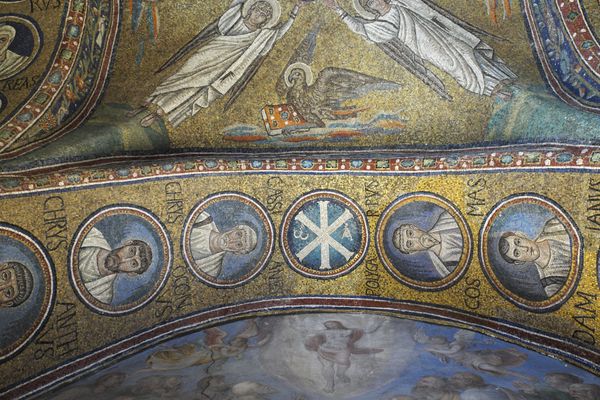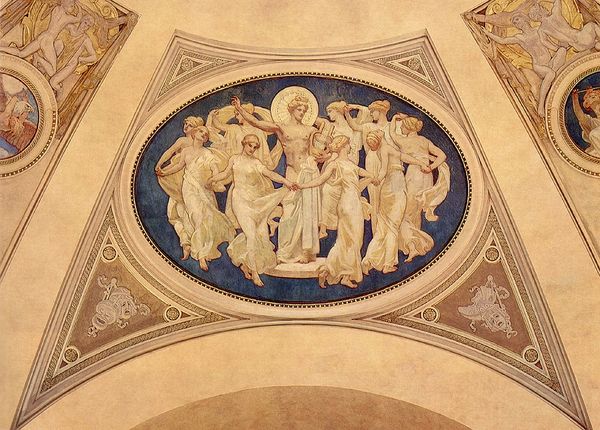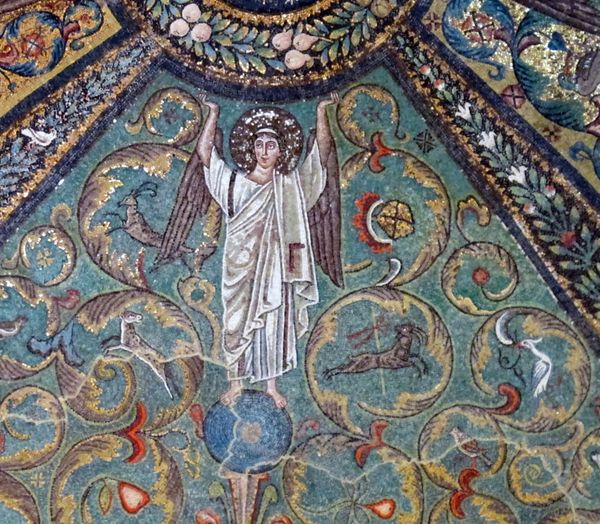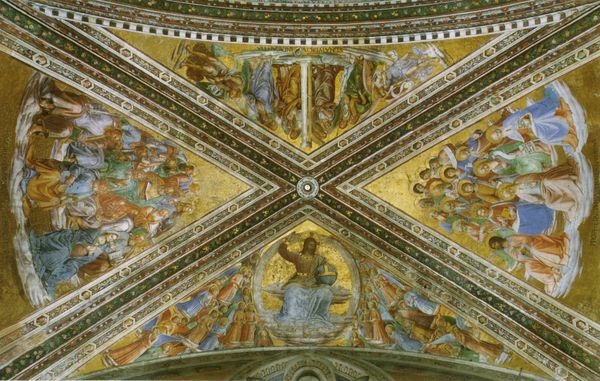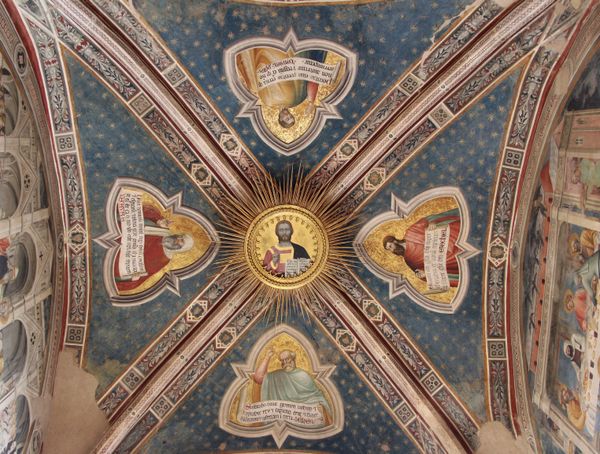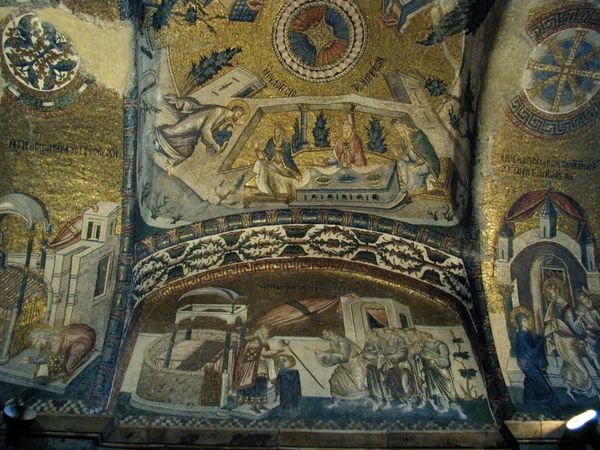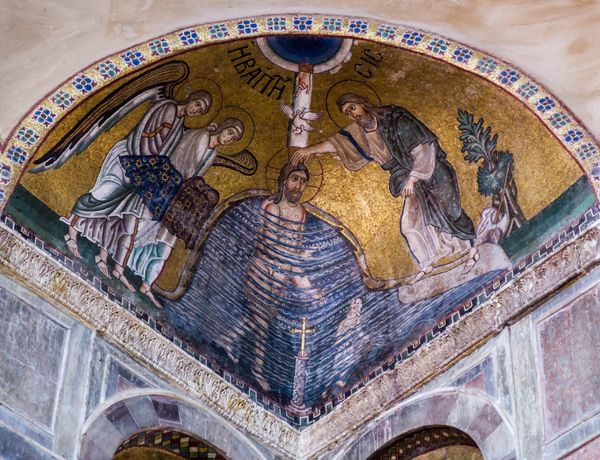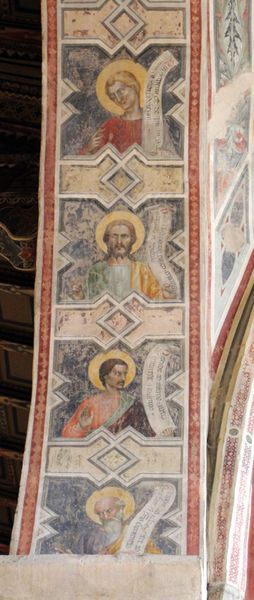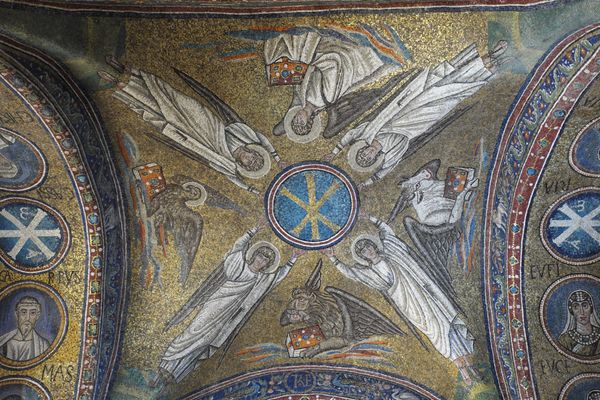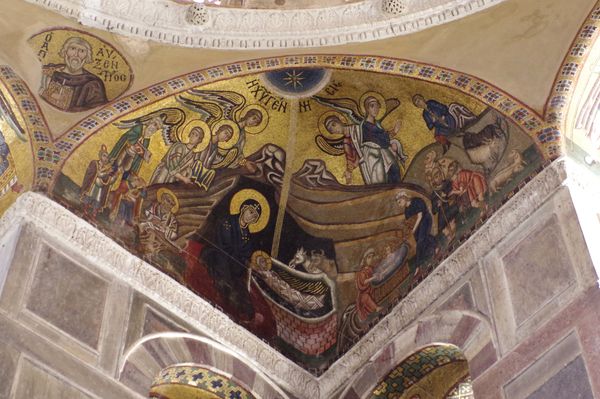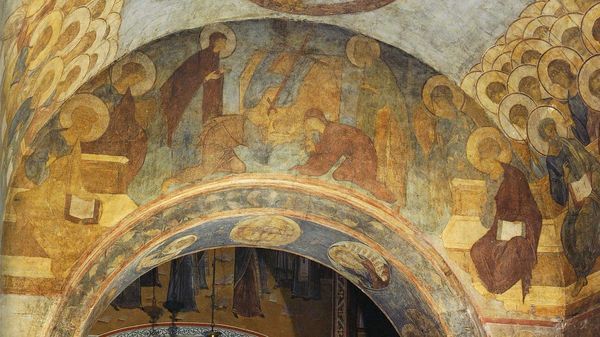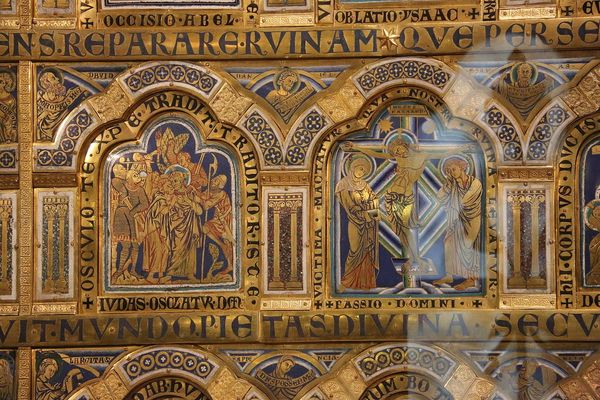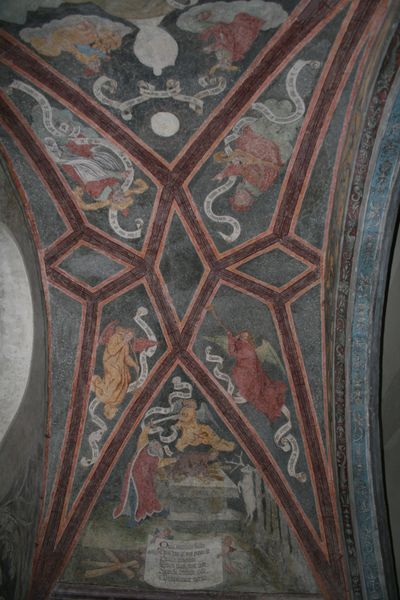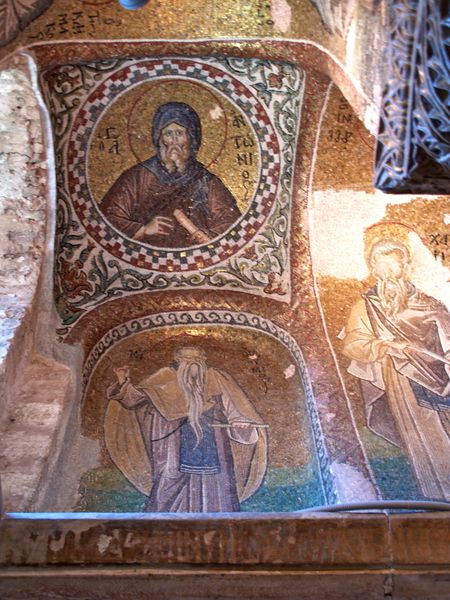
mosaic, architecture
#
mosaic
#
byzantine-art
#
medieval
#
holy-places
#
figuration
#
historic architecture
#
traditional architecture
#
geometric
#
arch
#
history-painting
#
architecture
#
historical building
Copyright: Public domain
These mosaics, made of tiny pieces of glass and stone, adorn the narthex of the Hosios Loukas Monastery in Greece. Crafted during the Byzantine era, they reflect a period deeply rooted in religious expression and imperial power. The images, predominantly of holy figures, are set against a shimmering gold background. This gilding elevates the spiritual tone of the space. During this period the depiction of women, such as the Virgin Mary shown here, began to evolve to communicate their roles within religious narratives and their importance in Byzantine society. However, these representations were carefully controlled to reinforce specific theological and social doctrines. The mosaics served not only as decoration but also as a medium for communicating religious teachings to a largely illiterate population. The Byzantine aesthetic is characterized by its formality and symbolic intensity, designed to inspire awe and reverence. This artistic style maintains traditional representations that served to reinforce social and religious ideologies of the time. Standing here, surrounded by these mosaics, one can imagine the emotional impact they had on worshippers throughout the centuries, offering a glimpse into their spiritual world and the complex interplay of faith, power, and art.
Comments
No comments
Be the first to comment and join the conversation on the ultimate creative platform.
